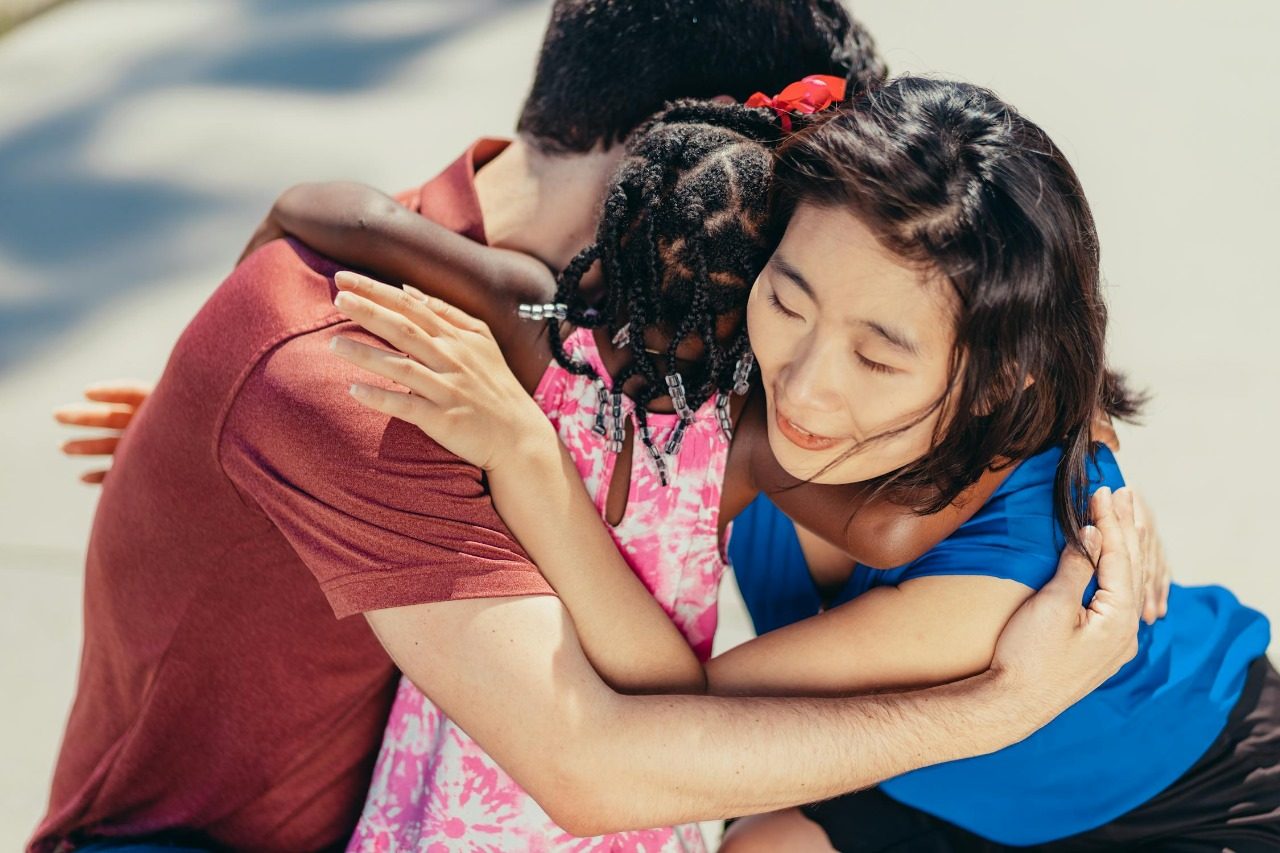Jun 4, 2024 in Coaching
Compassionate Conversations: Explaining Death to Children of All Ages
Compassionately discuss death with children of all ages. Discover tips for explaining and supporting them through grief.
It's your turn now! Let's support each other by clicking "Helpful".
+1

DISCUSS #Relationship
DISCUSS #Parenting
There is no subject more difficult to discuss with children and teenagers than dying. Tragically, it is also a subject that often must be discussed while adults cope with their own grief. How do you explain death to your child? Discussing death with preschoolers, school-age children, and teenagers should, of course, be approached differently.
Preschoolers
Death becomes surprisingly familiar to younger children. Many fairy tales, nursery rhymes, and Disney movies deal with the subject.
Additionally, pet animals die, and there is death depicted all over television screens in both fact and fiction. Evidence of death, such as animals by the side of the road, is common.
Add to myWE:
The hardest fact for a child to come to terms with, however, is that death is permanent, not temporary. It is also scary and challenging for children to understand that death happens to everyone, including their parents, caregivers, aunts, uncles, grandparents, and siblings.
A young child’s reaction to death may manifest in unpredictable ways.

There may be confusion as to why the adults in a child’s life, including the parents, are suddenly so sad and upset. Their routine, crucial to their stability, may be interrupted, leading to increased clinginess.
Changes in familiar scenarios, such as attending kindergarten, could become traumatic, with the child seeming desperate to avoid more changes in their life. Alternatively, a child may display a nonchalant response, seemingly bothered for a few moments before reverting to normal behavior.
This is a typical response at this age because children process significant events like death piece by piece over time. The release of grief might be delayed until the child is older and more capable of expressing it, especially when the deceased was someone close, such as a parent or sibling.
It’s essential not to avoid any questions about dying from a preschooler. Even if the death of a person close to the child has not occurred, it is a subject that should be discussed to help manage trauma when it does happen.
Answering a child’s questions should be brief, straightforward, and easy to understand. For example, it can be explained that a body has stopped working, so the person isn’t around anymore.
Euphemisms for death, such as ‘grandma’s gone to sleep,’ should be avoided as they could give the child the idea that if they go to sleep, they might die. Similarly, telling a child that someone died because they were sick could trigger worries that all illnesses lead to death. It can be explained that not all sick people die.
If a child is directly affected by a death, such as a close relative, they need to be informed about how activities previously done with that person will now be replaced.
Parents should not be afraid of expressing their grief so that children understand that they, too, are undergoing something complicated.
Open-casket funerals for young ones and older children can be traumatic and should be carefully considered before attending. It might be too traumatic for them. However, memorializing the deceased, such as lighting a candle or writing a letter saying goodbye, is a good idea.
Discussing Death With School-Age, Pre-Teen Children
Older children can grasp that death is an end and is permanent. Parents and caregivers can provide comfort just by ‘being there’ to give them a feeling of familiarity.
Grief and sadness at this age may manifest physically, such as through headaches or stomach cramps, accompanying tears and sadness. Mourning is likely to come and go, as the pre-teen processes the loss.
Recognizing that death is final, they may envision the deceased as an angel, skeleton, spirit, or ghost. They will want to know what happened and what will happen to the body. These questions shouldn’t be avoided and must be handled sensitively.
Death may also trigger concerns about their own mortality, leading to feelings of anger, shame, guilt, and possibly physical aggression. Feelings of abandonment and insecurity will surface, and they may even feel responsible for the death.
Children of different ages cope with death in various ways. Younger children might seem more clingy or regress to earlier behaviors, while older children may display physical symptoms of grief, such as headaches or stomach aches. Teenagers might react with more severe behavior, including lashing out or engaging in reckless activities. It’s crucial to handle each child’s grief with sensitivity and understanding, providing the support they need to process their emotions healthily.

Discussing Death With Teenagers
From the start of the teen years onwards, children will have a clearer understanding of death and its implications. However, while they have a mature understanding, they lack adult coping mechanisms.
Grief is likely to manifest in more severe ways, such as lashing out at family members and close friends. Reckless behavior as a consequence of grief, including alcohol abuse, drug abuse, fighting, and sexual promiscuity, should be watched for.
Death may lead to profound questions about their faith and fundamental worldview, potentially shattered by the event. As they seek independence, they may shun offers of help and assistance, spending more time alone or with friends. Discussing Death With Teenagers can also involve talking about the family’s religious or spiritual beliefs about death. Encouraging them to speak with someone outside the family, like grief counselors or mental health professionals, is beneficial.
Teenagers should play a role in the memorial and funeral. Visiting the location before the event may help calm nerves and provide reassurance.
Feelings of guilt may arise, especially if a sibling has died. This could be evident following arguments when they might have said, “I wish you were dead.” Guilt is a natural outcome, but teenagers may also take on more responsibilities, assuming roles previously held by the deceased.
Handling questions and reactions with sensitivity and understanding is crucial. Be open to how children of any age process their grief.









 Thank you for your help!
Thank you for your help!